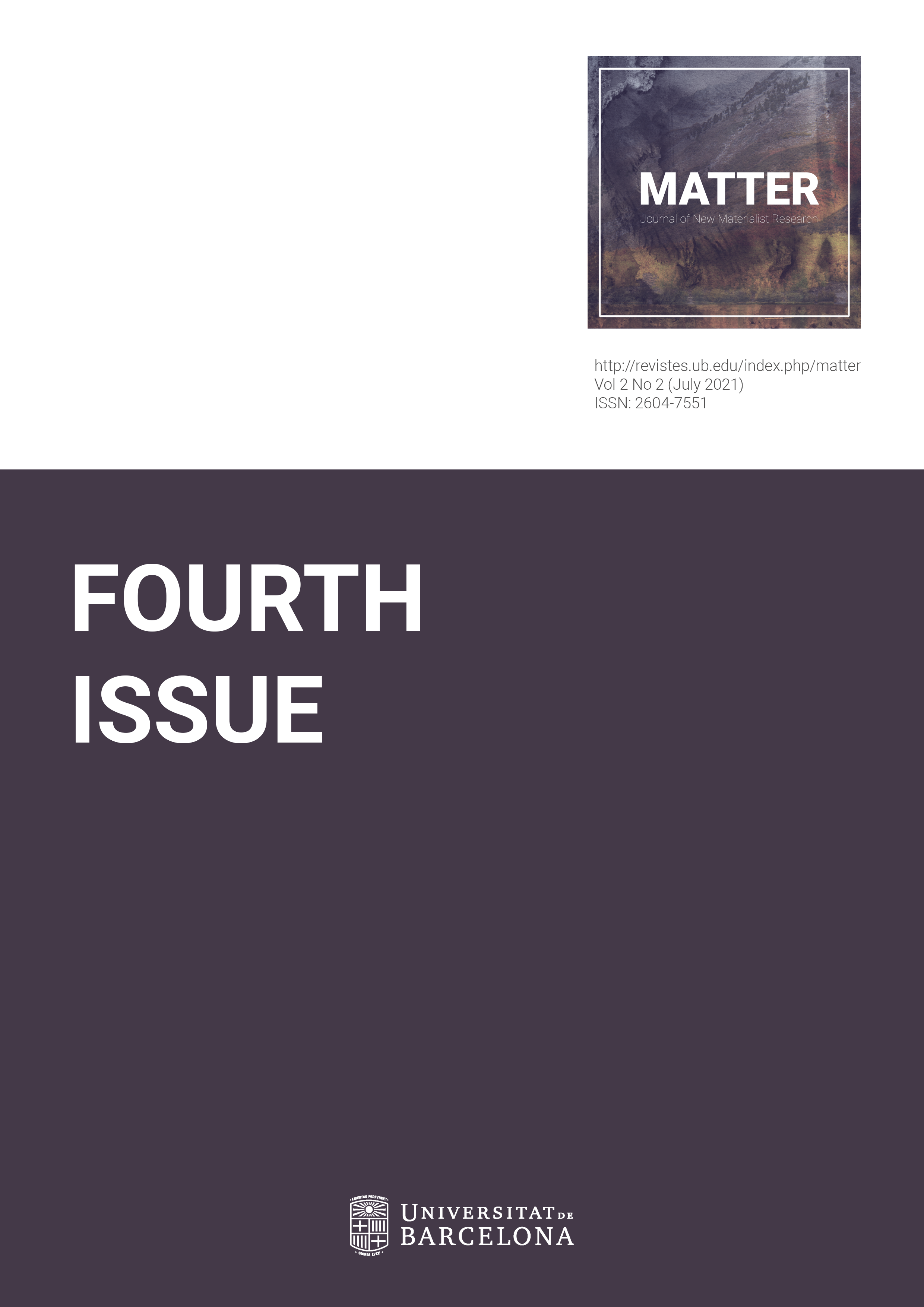What do ‘propositions’ do for research-creation? Truth and modality in Whitehead and Wittgenstein
DOI:
https://doi.org/10.1344/jnmr.v2i2.35891Abstract
Research-creation is a way of researching socio-material processes as art practices. Scholars and artists pursuing research-creation often reference Whitehead’s conceptualisation of the ‘proposition’ as a key theoretical device for speculative and creative work. However, this scholarship perhaps downplays the truth/false distinction that is essential to Whitehead’s account of the proposition in favour of the proposition’s potential as a speculative tool. In this paper, I explore the proposition as conceptualized by Whitehead. I think with a series of music theory concepts to theorise how Whitehead’s proposition explores a modality of truth. I then discuss how the concept is taken up in research-creation. I frictionally bring together Whitehead’s articulation of the proposition with that of the early Wittgenstein’s. Finally, I discuss some promises and perils of this approach, with direct relevance to questions around research method and methodology in the social sciences. This article is of relevance to scholars interested in research applications of process philosophy, graduate or post-graduate students interested in an introduction to Whitehead, and research-creation practitioners interested in the proposition.
Downloads
Downloads
Published
Issue
Section
License
Copyright (c) 2021 David Ben Shannon

This work is licensed under a Creative Commons Attribution 4.0 International License.
The authors who publish in this journal agree to the following terms:
- Authors retain all copyright ownership and grant the journal the right of first publication.
- Authors authorize the dissemination of their works in the academic databases where the journal is indexed or may be indexed in the future, even if these are of a commercial nature.






